Cristian Mungiu, acclaimed for winning the Palme d'Or with "4 Months, 3 Weeks and 2 Days" and the Best Director award at Cannes for "Graduation," has established himself as a master of Romanian cinema. His work is characterized by a detached aesthetic, a cold narrative style, and a compassionate observation of society, imbuing his films with a rich humanistic atmosphere. His latest film, "R.M.N.," which competes once again in the main competition, initially puzzled fans with its simple title. The combination of letters inevitably evokes the English spelling of "Romanian," sparking curiosity about its specific meaning.
In fact, "R.M.N." is an abbreviation for "Rezonanta Magnetica Nucleara" in Romanian, which translates to Nuclear Magnetic Resonance in English. In this film, Cristian continues to explore many issues faced by Romania in an engaging and highly humanized manner. He depicts the identity and national belonging of various groups in one of the last countries to join the European Union (Romania joined with Bulgaria in 2007), as well as the spread of racism and xenophobia stemming from this.
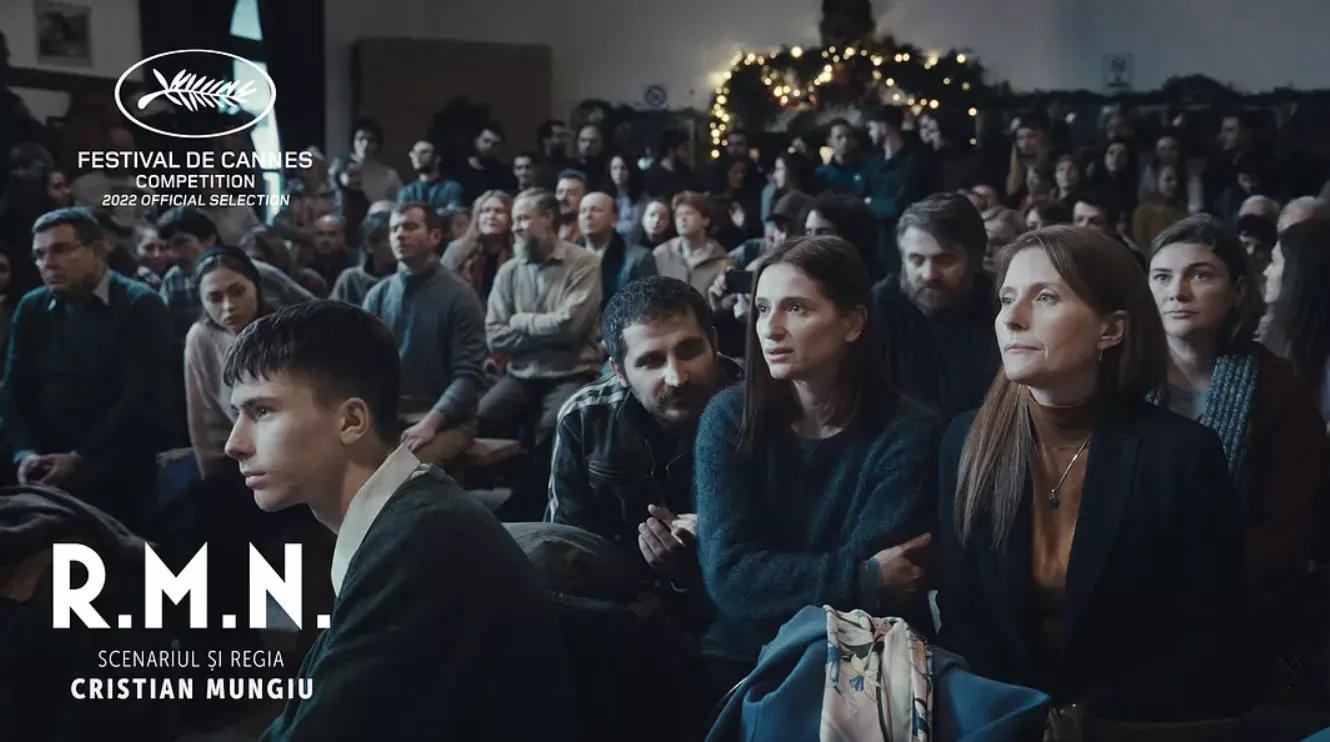
The True Protagonist
Cristian focuses on a small town in Transylvania as the backdrop, a land at the crossroads of different countries and languages colliding. Many residents work abroad, especially in Germany. The region has been inhabited by Romanians, Hungarians, and Germans at different times, and they use different languages in the film. During screenings, Cristian uses white, purple, and yellow to represent the dialogue of different languages.
At the beginning of "R.M.N.," Matthias's young son Rudi walks through a forest on his way to school one morning. He sees something that scares him and makes him feel afraid and speechless. This small incident metaphorically represents a place troubled by fear of outsiders. Later, we see Matthias fleeing Germany back to Romania after he beats up the German factory owner who called him a "gypsy." His return is one of several narrative threads in "R.M.N."
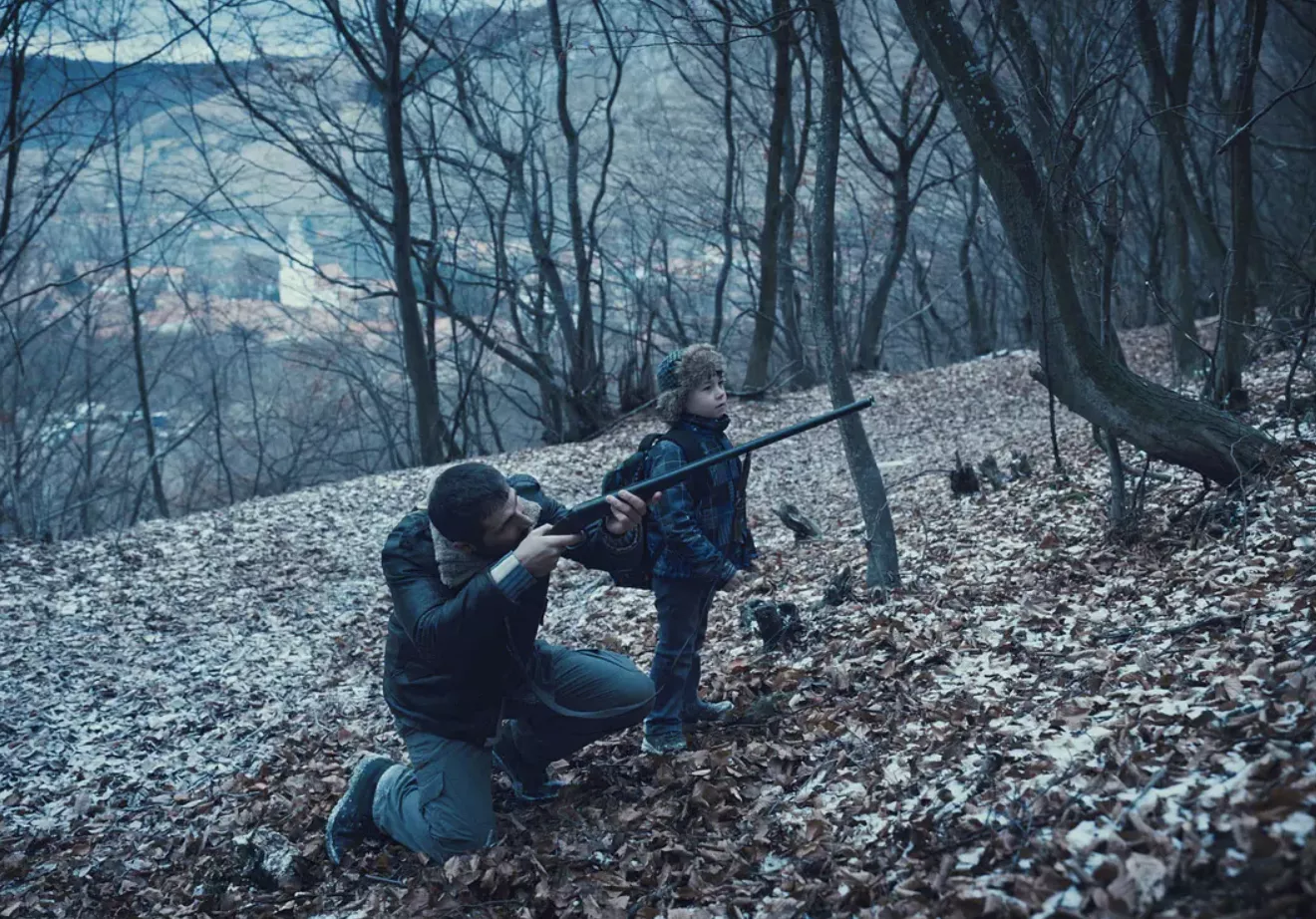
Matthias is a local, but the Sri Lankan workers are treated as unwelcome immigrants, which is a ironic insult. Issues of identity and ethnic belonging haunt these characters until they erupt in the latter half of the film.
Matthias's return is not entirely welcomed. His ex-wife Ana lets him sleep on the couch, and the couple argue over their son's issues due to their differing approaches (Matthias believes he "must be a man" and cannot be dominated by fear, while the mother insists on sleeping with him and refuses to let him go to school alone). Therefore, Matthias starts seeing his former girlfriend Csilla, who is Hungarian and divorced in the village.
Csilla becomes the main protagonist of the unfolding plot. She is a cello enthusiast and uses the classic soundtrack "Yumeji's Theme" from "In the Mood for Love" as her practice piece multiple times in the film. Her daily job is running a local bakery, which she expands by recruiting young Sri Lankans primarily to help her obtain EU economic subsidies, although this is not revealed to them. Csilla can be considered the most international person in town: she speaks at least four languages and takes good care of these recent immigrants.
The recruitment of outsiders gradually becomes the core conflict of the film - the bakery needs workers, but the local labor force is severely depleted, and people can earn more by going to other countries. Locals are unable to accept this job due to low wages and strenuous work, preferring to sustain their livelihood through social assistance. However, when the bakery hires immigrants, it triggers xenophobia and racism among the local residents.
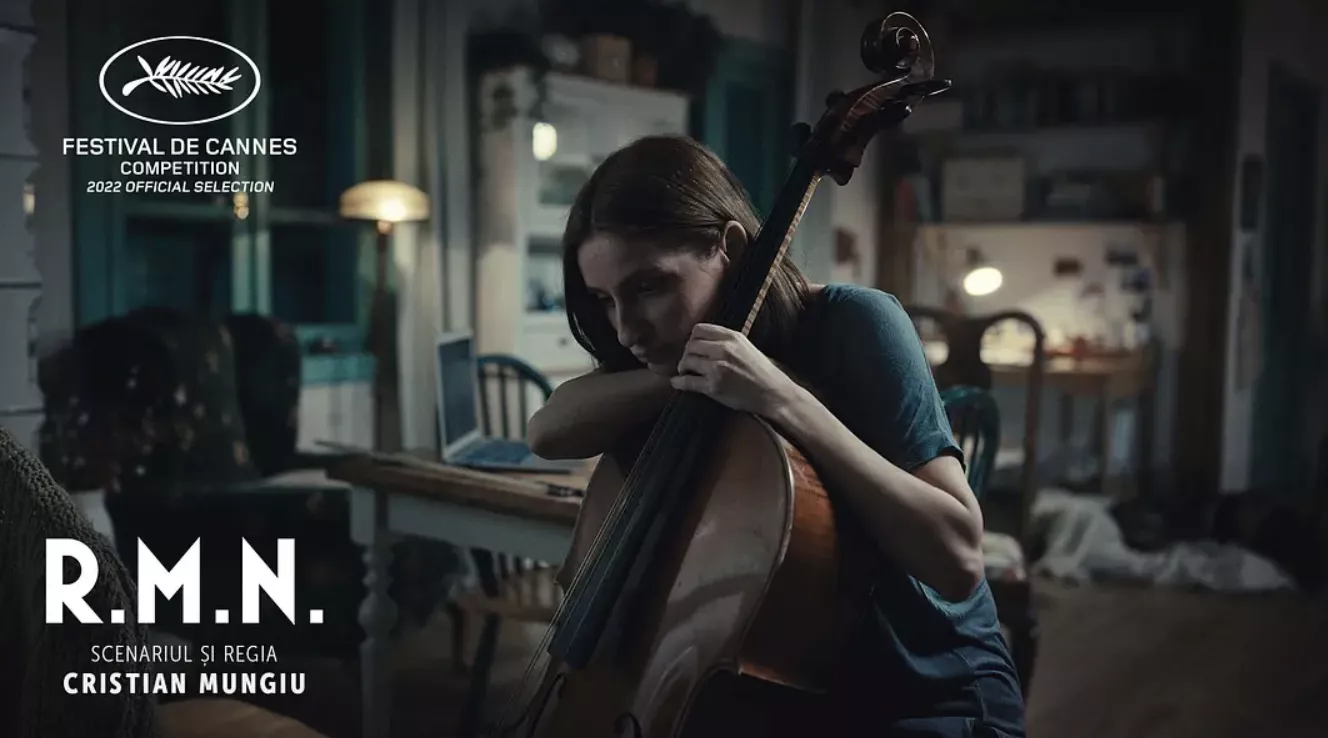
Cristian tells the story of two people dealing with various issues. For Matthias, this includes trying to reconnect with his young, non-verbal son Rudi while also taking care of his father Papa Otto, who has developed neurological problems and underwent an MRI after collapsing at a sheep farm one morning. For Csilla, she must recruit workers to keep the factory running while also handling the resulting protests from residents.
However, the town itself is actually the true protagonist of the film, and what makes Cristian's work so brilliant is that it is never named - it is a melting pot of nationalities, with Romanians, Hungarians, Germans, and even European descendants from other countries (who have dealt with similar anti-Gypsy sentiments in the past) living together.
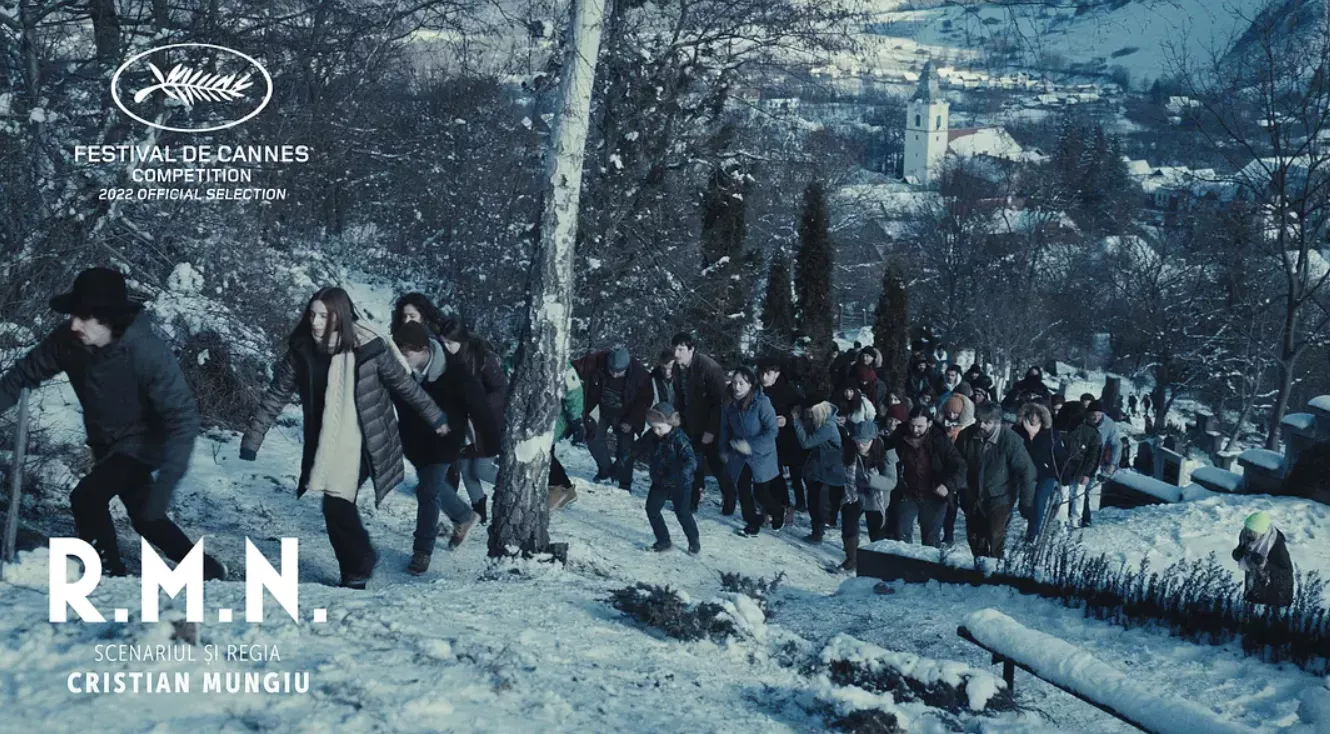
Reality of Superficial Harmony and Hidden Tension
The conflicts and plot development in Cristian's work require a lot of time to be carefully laid out, as every action in the film is rooted in this reality of superficial harmony and hidden tensions. In this film, he continues to collaborate with Tudor Vladimir Panduru, the cinematographer of "Graduation," using wide shots that capture breath-taking mountain scenery and allow actors to perform their scenes without cutting in long takes under Cristian's masterful direction.
Such a method is surprisingly effective at critical moments - a citizen debate held in a town hall, which can be called the climax of the entire film and also reflects Cristian's mastery. This 20-minute scene has only one shot, and the camera position and perspective are basically fixed. Matthias and Csilla debate with several dozen other villagers whether to ban foreign workers. In this scene, everyone's seat, position in the frame, order of their speeches, and even the speed of their speech are crucial. If you don't pay attention, it could disrupt the rhythm of the film.
Most importantly, through this citizen debate, he explored the region and Romanian society. The local workforce shortage is caused by people choosing to work in other EU countries rather than in small towns, yet they still face discrimination. If migrant workers are driven away, it will be challenging for the bakery to sustain its business and will impact the local economy. However, one of the main reasons the bakery hires migrants is to receive EU subsidies. Simultaneously, most of the profits from the bakery's operations are used by managers to buy luxury cars, while workers have to work hard to earn minimum wage. If they stay, they will also face discrimination like the outsiders who left, and their lives may even be threatened. Cristián used this play to showcase conflicting opinions among people on the same issue. Although the film features dialogues in multiple languages, the underlying sentiment remains the same: "Outsiders will take what belongs to us."
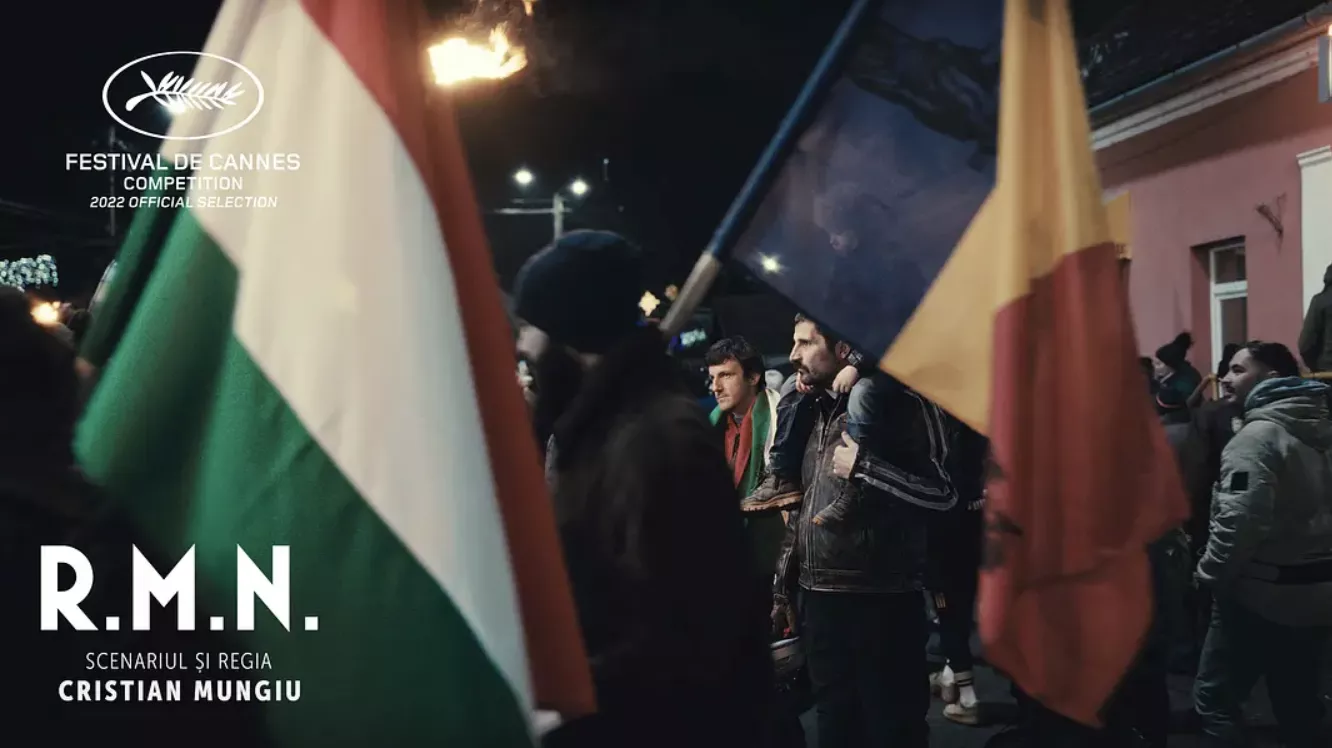
When humans encounter differences in race, class, economics, or nationality, it's easy to fall into double standards when making binary judgments. This shift depends on which side you're on. Just like at the end of the movie, when Matthias faces the bears in the forest near the village with his back to the audience and a gun in his hand, this is a question that Cristian poses to the audience: should he shoot? French ecologists believe that bears have ecological value for the natural environment, but people here see them as a threat to social safety. The answer depends on your standards. Are you outside or inside "home"?
Csilla still has the option to escape and find high-paying jobs abroad. Population transfer happens when local economies are depleted, and individuals from other countries come in to take their place. In both scenarios, people never truly stay at home. In this unnamed town in Romania, "home" has never been clearly defined.
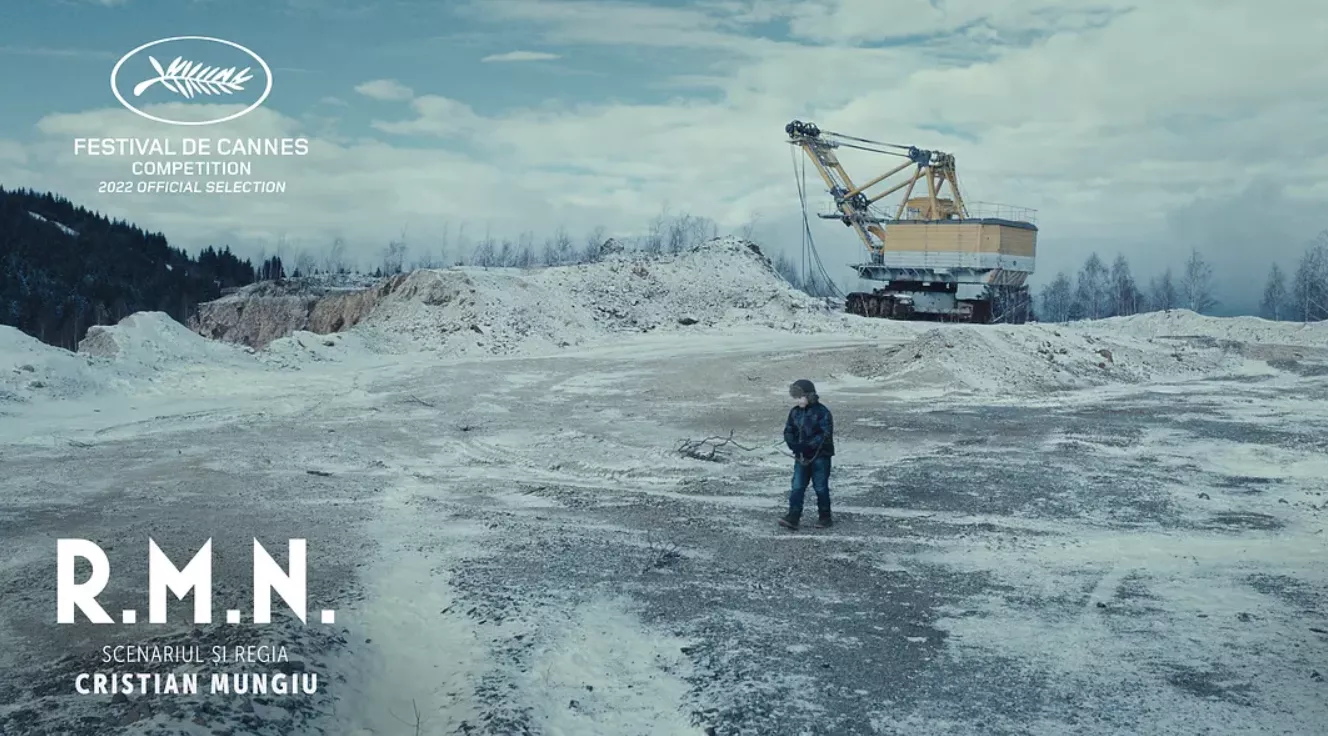



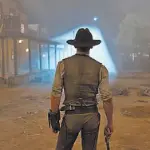




Share your thoughts!
Be the first to start the conversation.